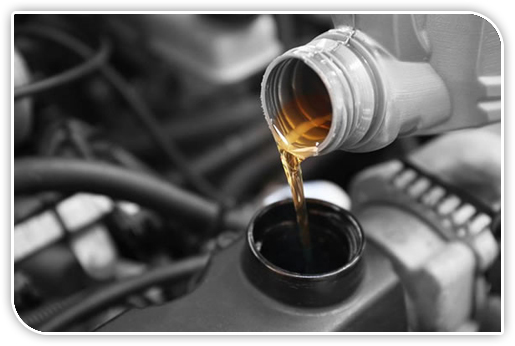


Fuel oil is a fraction obtained from petroleum distillation. It includes distillates - the lighter fractions, and residues - the heavier fractions. The term fuel oil generally includes any liquid fuel that is burned in a furnace or boiler to generate heat, or used in an engine to generate power.
Fuel oil consists of long-chain hydrocarbons, particularly alkanes, cycloalkanes, and aromatics. Small molecules like those in propane, naphtha, gasoline for cars, and jet fuel (kerosene) have relatively low boiling points, and they are removed at the start of the fractional distillation process. Heavier petroleum products like diesel fuel and lubricating oil are much less volatile and distil out more slowly, while bunker oil is literally the bottom of the barrel. In oil distilling, the only things denser than bunker fuel are carbon black feedstock and bituminous residue (asphalt), which is used widely for paving roads, and in some regions for sealing roofs.


Crude oil is a naturally occurring, unrefined petroleum product composed of hydrocarbon deposits and other organic materials. A type of fossil fuel, crude oil can be refined to produce usable products such as gasoline, diesel, and various other forms of petrochemicals
Crude oil is a naturally occurring, unrefined petroleum product composed of hydrocarbon deposits and other organic materials. A type of fossil fuel, crude oil can be refined to produce usable products such as gasoline, diesel, and various other forms of petrochemicals. It is a nonrenewable resource, which means that it can't be replaced naturally at the rate we consume it and is, therefore, a limited resource.
Liquefied petroleum gas (LPG), also called LP gas, any of several liquid mixtures of the volatile hydrocarbons propene, propane, butene, and butane. It was used as early as 1860 for a portable fuel source, and its production and consumption for both domestic and industrial use have expanded ever since.
By shipping storing and trading gas. we meet the needs of both the petrochemical industry and domestic users. Our key strength is our ability to combine technical expertise with a strong commercial focus


Our LNG spectrum of activities include a wide range of logistics freight and storage facilities. We have been able to leverage our global resources to meet LNG's complex logistics requirements.
Liquefied natural gas is natural gas that has been cooled down to liquid form for ease and safety of non-pressurized storage or transport. It takes up about 1/600th the volume of natural gas in the gaseous state. It is odorless, colorless, non-toxic and non-corrosive.